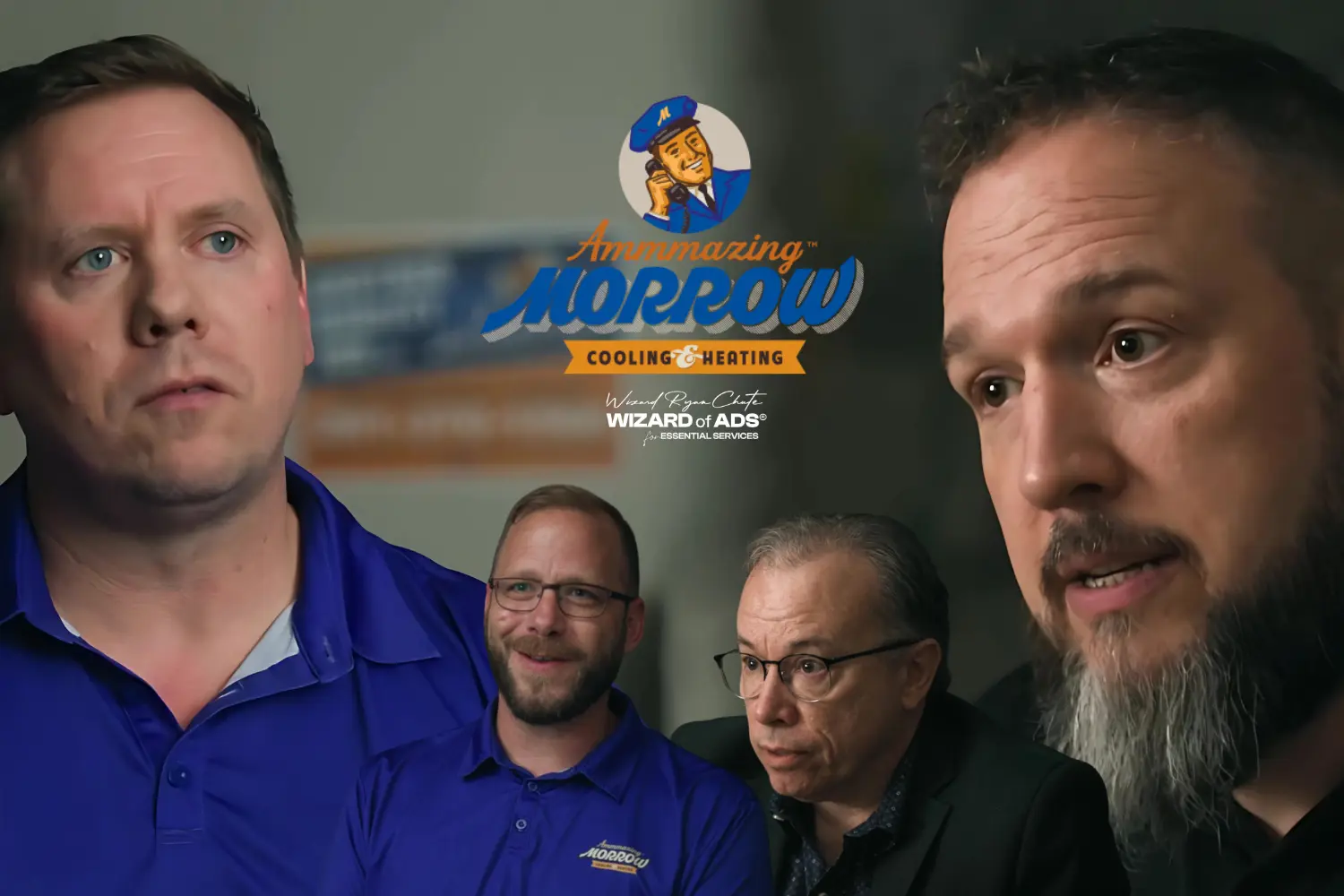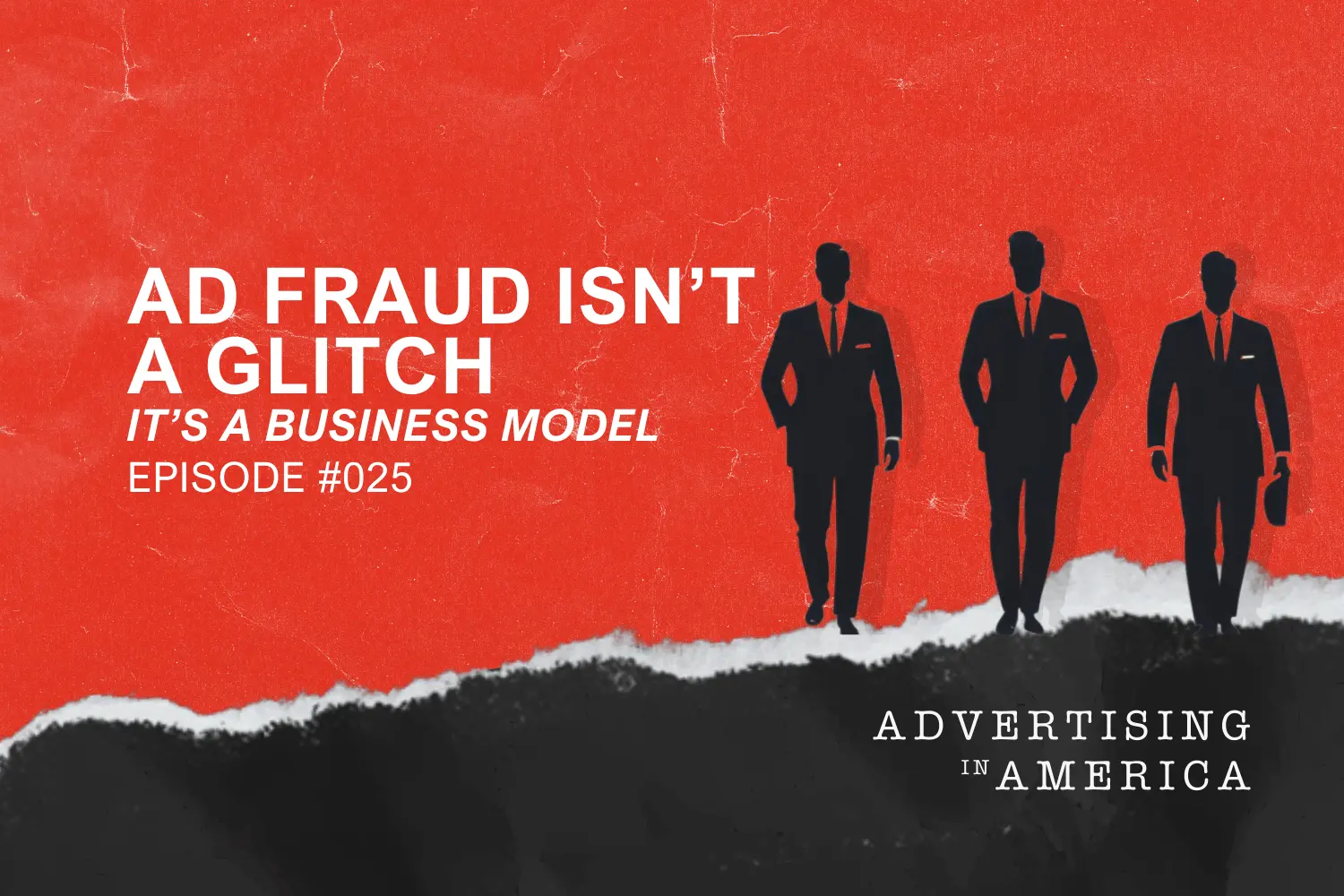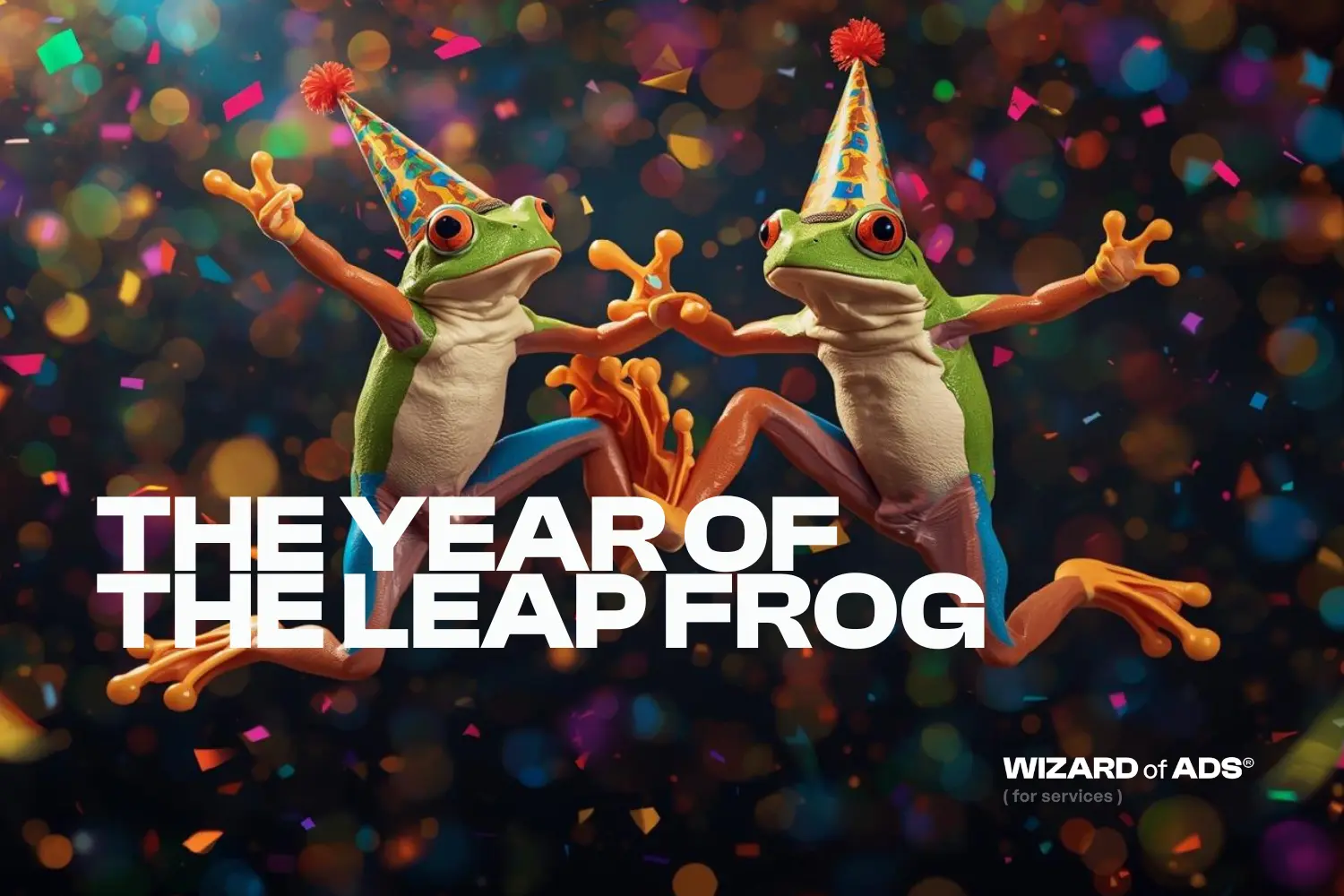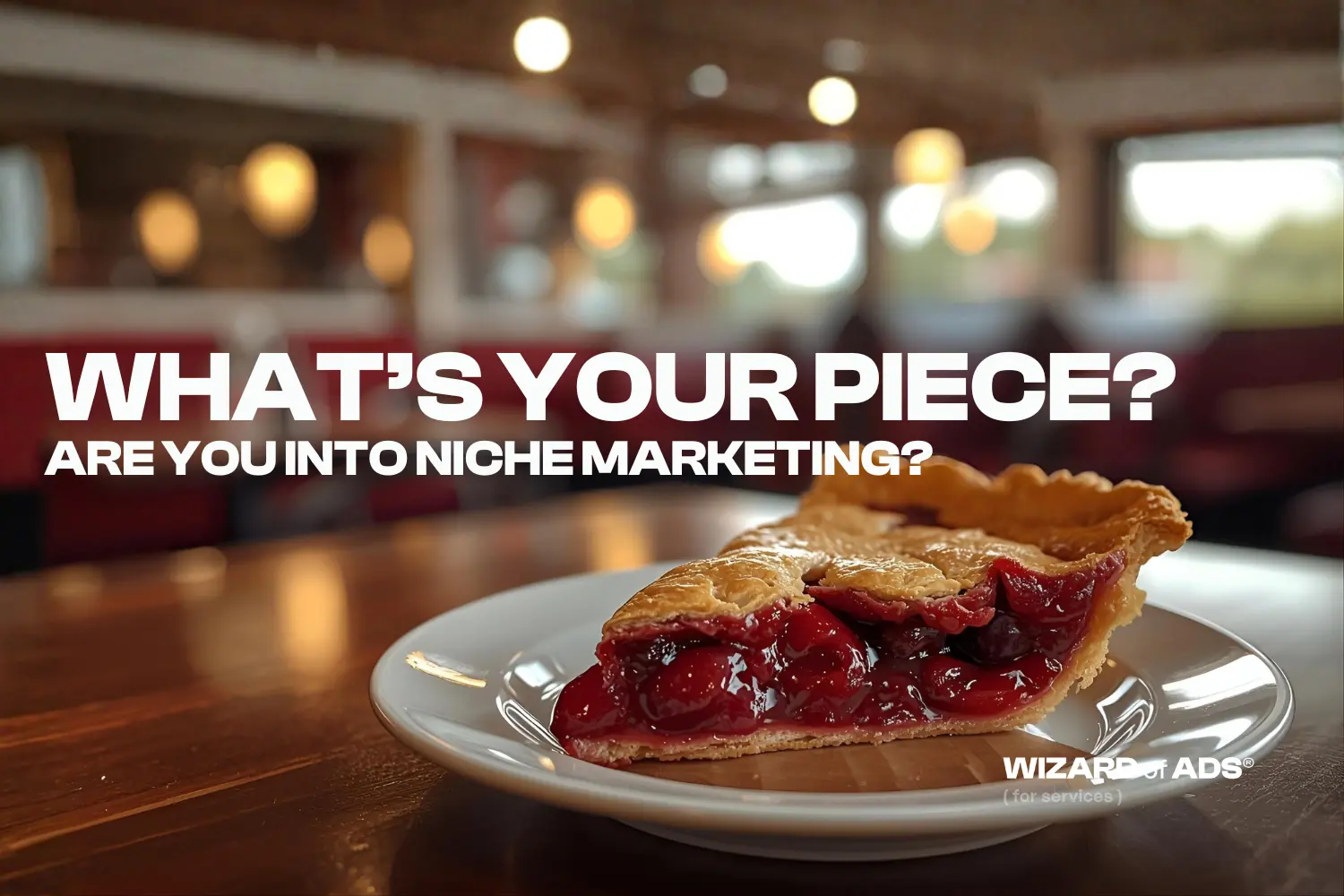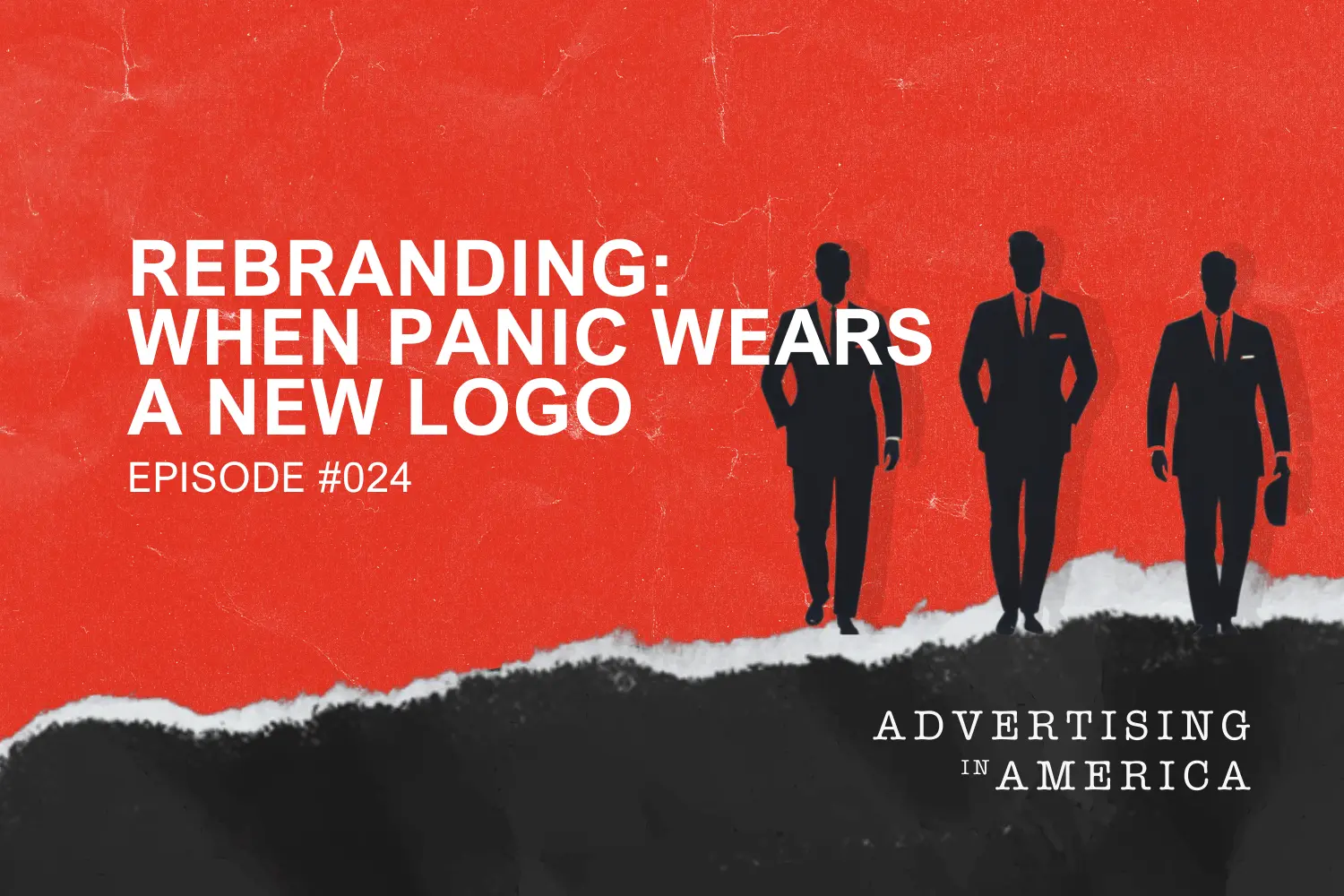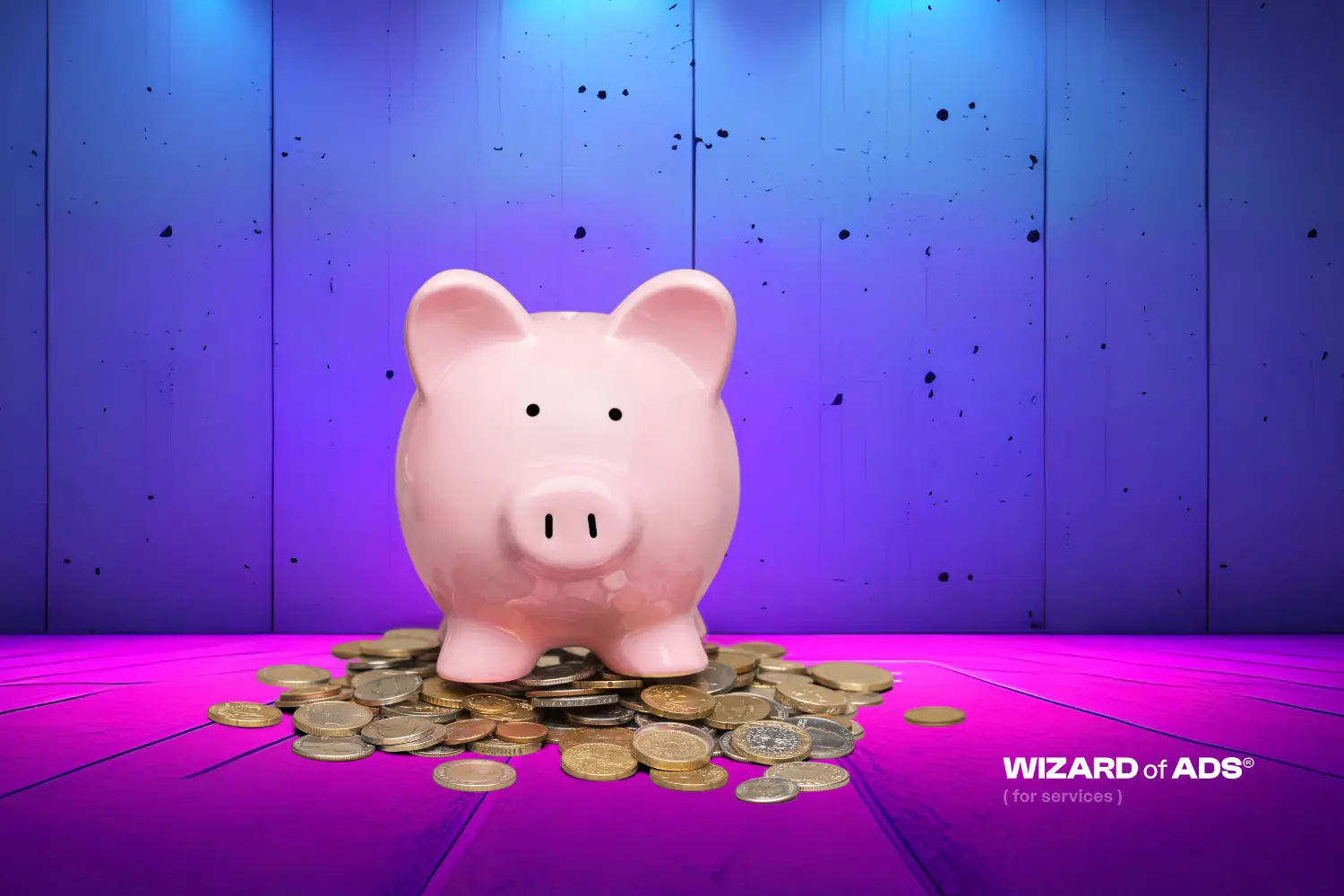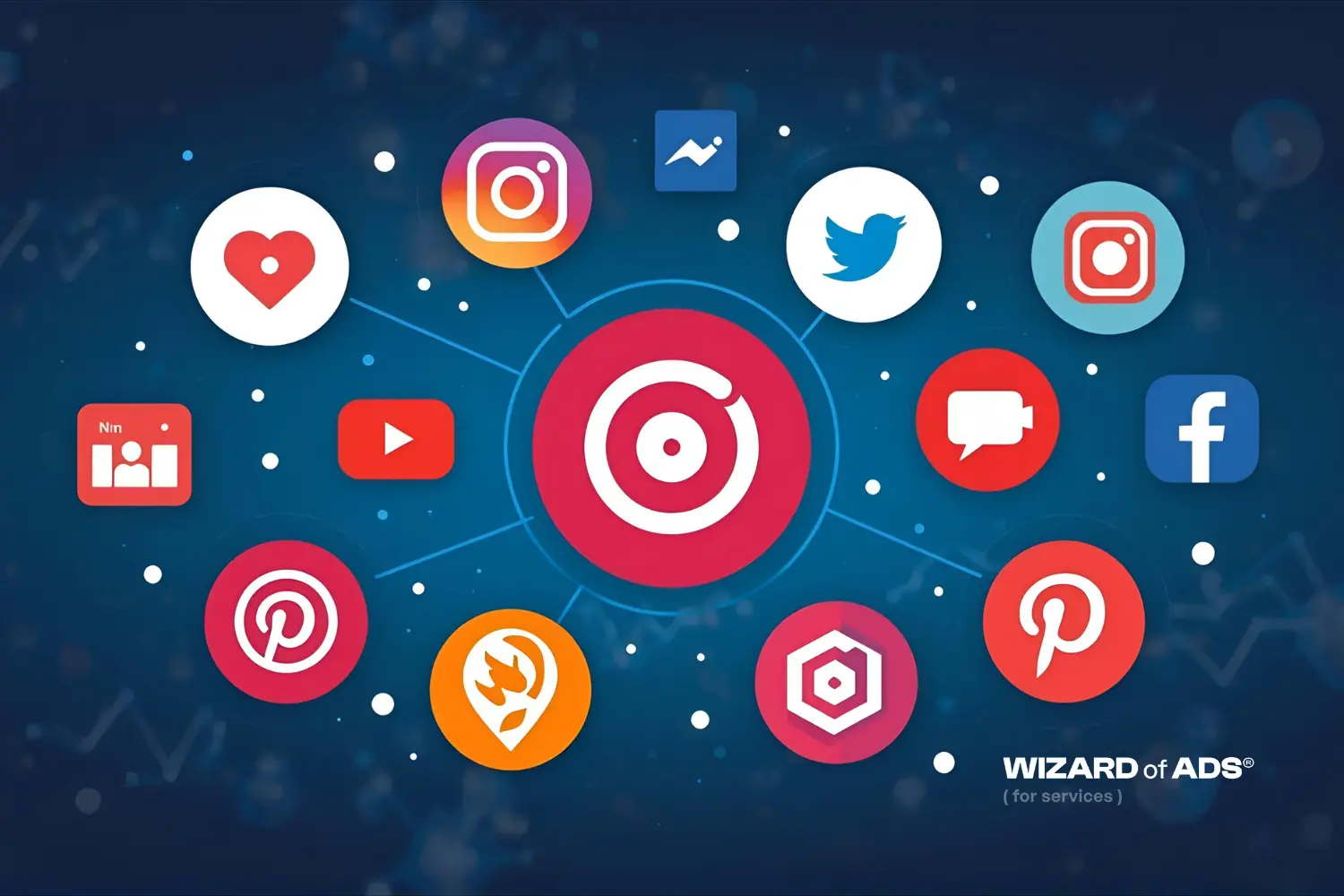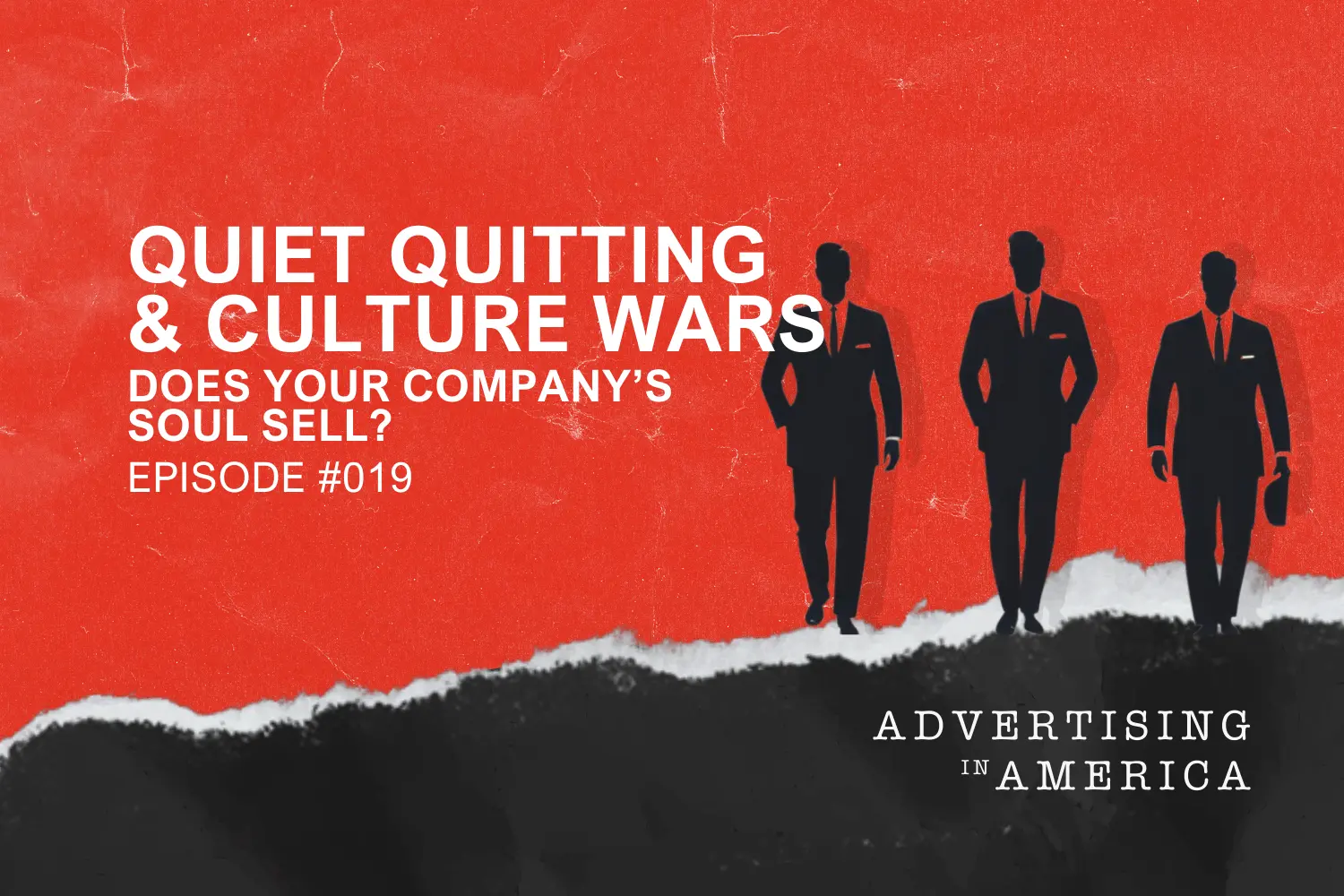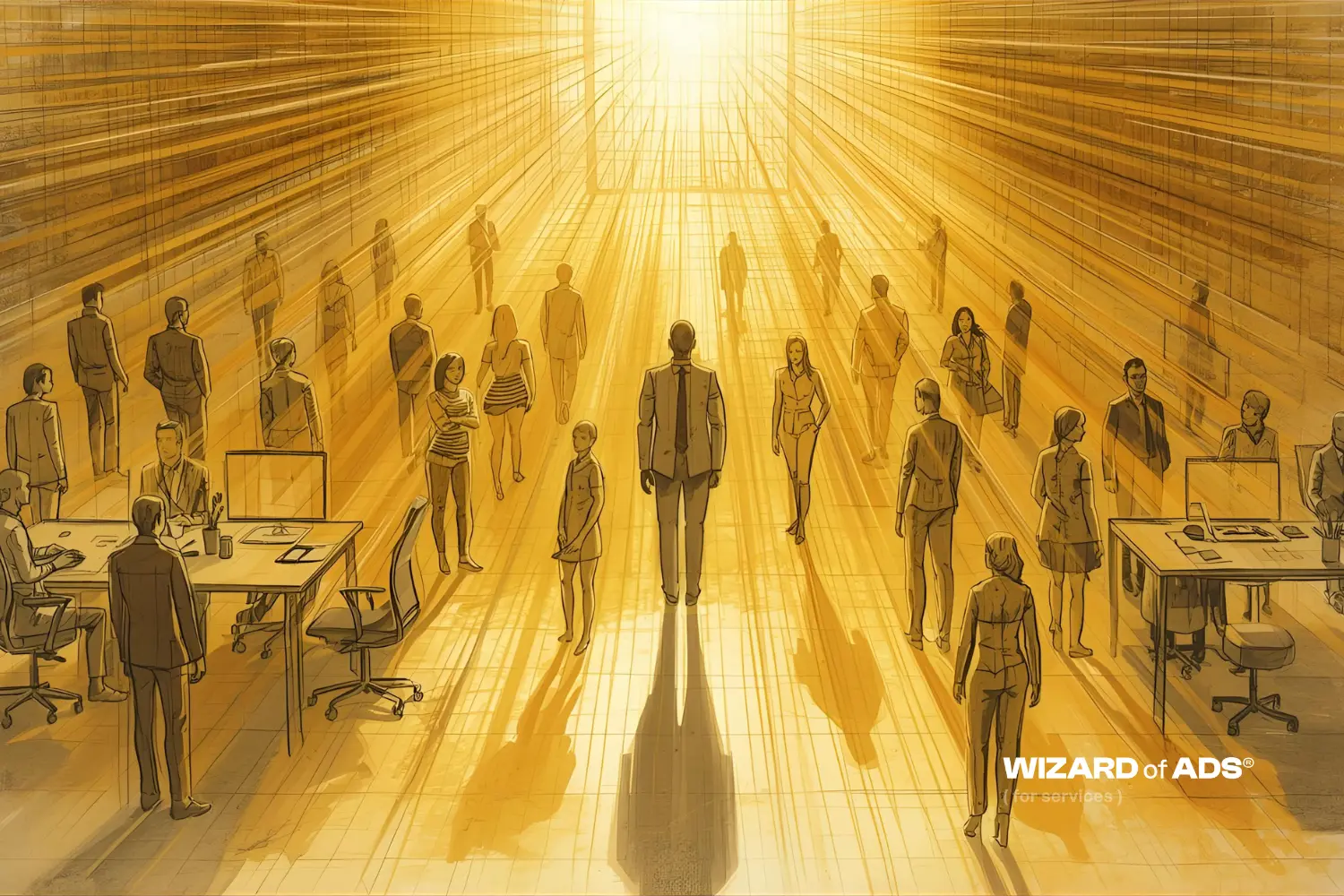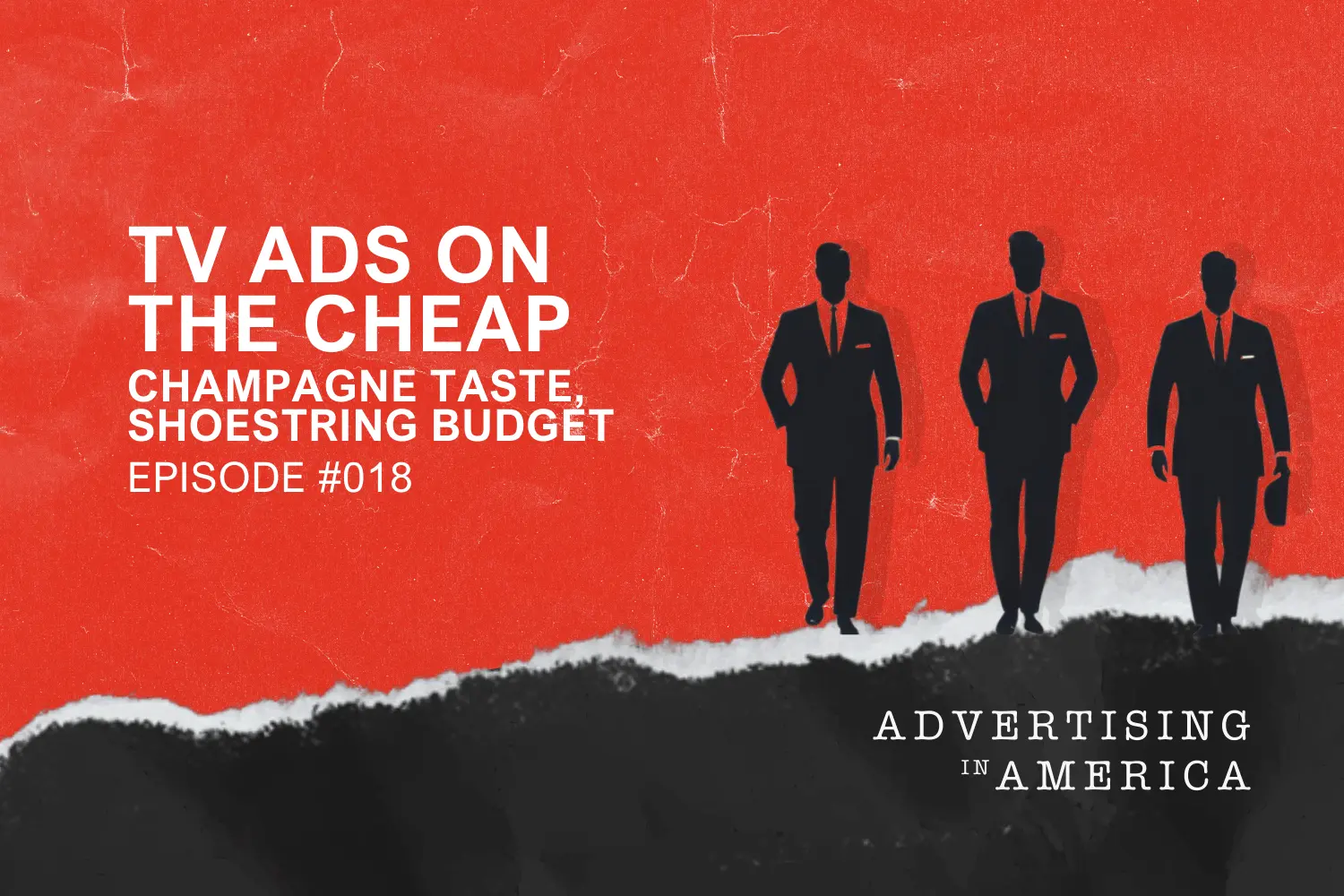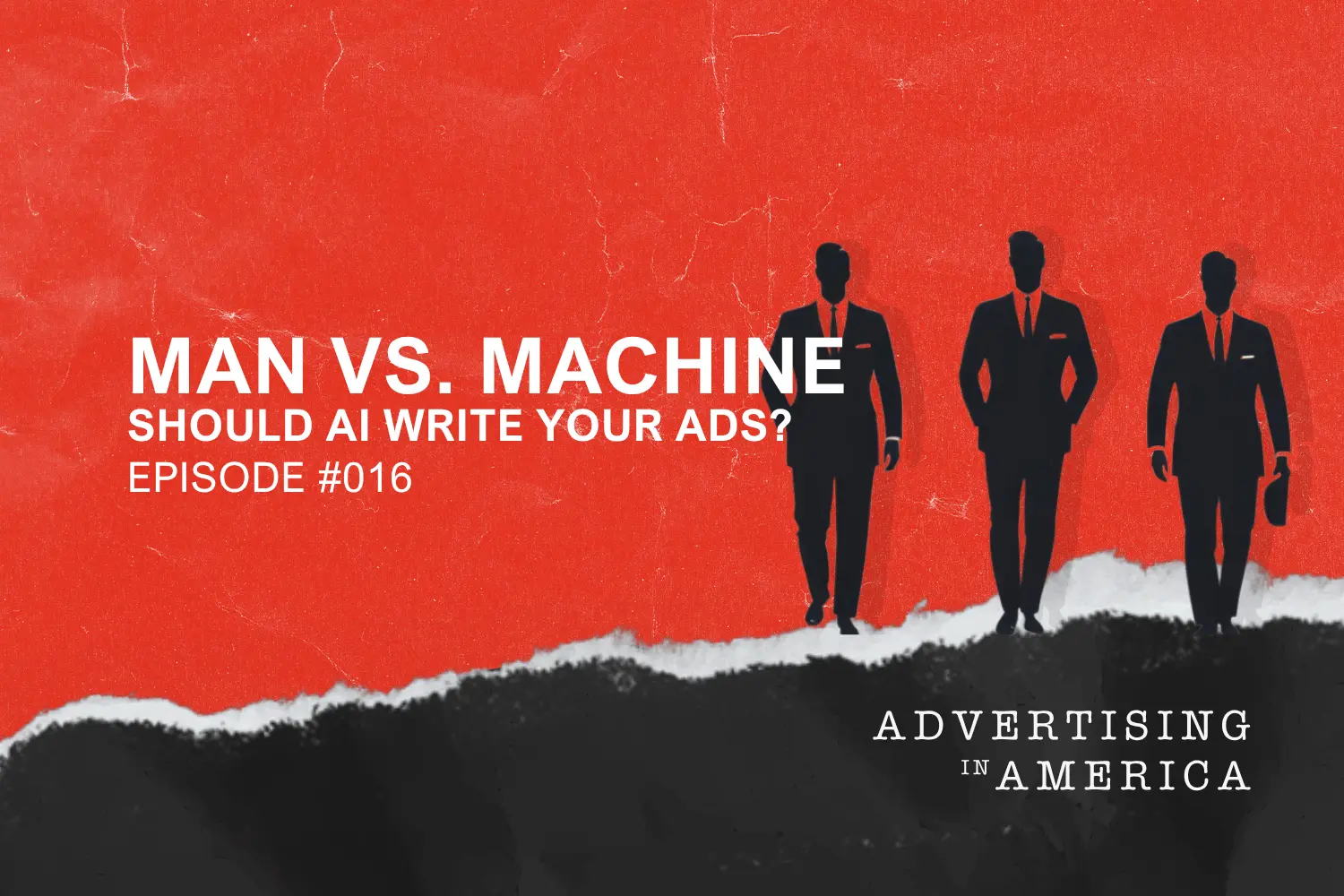
What happens when you pit human copywriters against AI?
In this no-holds-barred episode, Ryan Chute referees as ad wizards Mick Torbay and Chris Torbay duke it out over whether AI is the future of advertising—or just another way to make mediocre ads faster.
From Budweiser frogs to Old Spice horses, they reveal why AI can only remix old ideas while humans invent the unforgettable. But they also admit: sometimes, "middlest" ads are all you need.
In this episode of Advertising in America, Ryan, Mick, and Chris go toe-to-toe over perhaps the biggest question in modern marketing: Should AI be writing your ad copy? 🚨
Should you trust a robot with your copy, or is that creative suicide? Tune in to find out.
Episode Highlights
- Why AI can’t (yet) invent campaignable, unforgettable ideas.
- When AI is great for testing, data, and speed.
- How to spot when you’re lowering the bar—and losing business to competitors who think differently.
Whether you're a brand-builder navigating the AI landscape or a creative looking to defend your craft, this conversation will sharpen your instincts—and challenge your instincts about letting robots in the creative room.
▶️ Tap in for the showdown—then decide: are you ready to hand the mic to AI?
📱 Subscribe wherever you get your podcasts
💬 Drop a comment: Would YOU trust AI with your ad copy?
💥 Brought to you by Wizard of Ads® for Essential Services
The most important thing to understand about AI is that it has to be trained, and what you train it on is important. It will never suggest an ad with a bunch of guys sitting around having a Bud, calling their friends just to shout “what's up”, and it will never suggest that, “Hey ladies, the man on the horse is the man your man could smell like.” Human writers created those unique ideas.
AI is really good at seeing patterns, amalgamating ideas, looking at what's out there and mimicking that. AI compiles what's already been written by humans. And says, “I can do that,” and it can, but what it cannot do, at least for now, is come up with something that no one else would've thought of. Ideas that break the pattern.
This is some of the powers that I see AI bringing to us is that instead of it taking us two hours to do that, we can do that in five minutes.
Ryan Chute: In today's episode of Advertising in America, we will pit man against machine. Should AI, ChatGPT, be writing your ad copy, or should we trust in humans to keep things interesting? Fighting for the machine, here's Mick Torbay.
Mick Torbay: Anyone who says AI will never replace humans doing creative work is probably kidding themselves.
It's only a matter of time, and you've probably already heard some ads or viewed some ads that were written by ChatGPT or one of the other ones, and it's very likely you may not even know that you're listening to words written by a robot. Half the stuff you scroll past on TikTok is AI. Hell, it's probably a robot voice that's reading it too. You can totally tell it's an AI voice, but they're getting better by the week. Pretty soon, you won't notice it so much anymore, if at all, in a lot of cases.
So if you wanna give the job of writing your commercials to a computer, well, this is the first time in history you'd have a shot of getting away with it. And let's face it, the price is right. The reason you might get away with it is because most commercials, and I've talked about this before, but most commercials are not written very well. It's a meat grinder of stuff the client wants to put into the messaging.
Back in the old days, the client would tell the sales rep what they wanted to talk about. The rep would write it down, bring it to the writer at the newspaper or the radio station or the TV station and say. Make the ad about this. The ad writer who just wants a happy rep would do their best to squeeze in the things that matter to the client and hope for approval. This is how it worked for nearly a century, and that's why most ads suck. Garbage in. Garbage out.
Every business owner in every category gave the same list to the ad writers because they all feel the same pain. They all have the same priorities, and that's why they all sound the same. Which brings us to AI. You see, AI is really good at seeing patterns, amalgamating ideas, looking at what's out there and mimicking that. AI compiles what's already been written by humans and says, “I can do that,” and it can.
But what it cannot do, at least for now, is come up with something that no one else would've thought of. Ideas that break the pattern, what AI will not do is push back on the client. If you ask it to write an ad with three ideas in it, that's exactly what it'll do. If you ask me to write an ad with three ideas in it, I'm gonna tell you that that commercial will suck and I won't do it.
You have three ideas. I'll write you three ads, each with one idea, and if you tell me to put the phone number in a 30-second commercial, I'll tell you “no, we're not putting the phone number in.” AI will put the phone number in. AI doesn't want any trouble. I'll fight for a good commercial. That's the difference for now.
Someone sent me a script for the TV series Seinfeld recently that was written by AI, and I've watched the entire series, so I know the beats and the type of humor, and I'm reading this fake AI script and thinking this could totally be a Seinfeld episode. You dump all the Seinfelds into ChatGPT and tell the AI to write something like that, and it'll totally come up with another one of those. It's kind of spooky.
What AI cannot do, at least not yet, is pitch a network and say,” I've got an idea. It's a show about nothing,” and then make that work. As of today, that's not a thing. AI can give you another one of those. So if you're looking for the advertising equivalent of another one of those and you can't afford anything better, knock yourself out.
It won't be the best copy, but it won't really suck that much either. It'll be firmly in the middle, and that's better than a lot of the stuff that's out there. As I said before, the bar is low, and there's no need to pay good money for weak ass ads. So if you think you can win with another one of those, save your money, get the robot to do it.
Ryan Chute: Would you say that they could possibly be the Middlest ads in the universe? Here we go. Now, for the man who will rage against the machine, Chris Torbay, everyone.
Chris Torbay: The problem is, I have a dog in this race. Of course, I don't want you to use AI to write your ads. I'm an ad writer, but the other reason you shouldn't do it is because it will be shit.
Let me explain. The most important thing to understand about AI is that it has to be trained, and what you train it on is important. I recently worked with a biomedical startup in Oxford, England, that used AI to find unique ways to treat cancer in individuals and their machine learning algorithms were trained by astrophysicists to infer how much dark matter exists in the universe. Astrophysicists look at the gravitational properties of millions of stars and thousands of galaxies to calculate the mass of the dark matter we can't actually see. Using AI trained on that to find cancer was a breakthrough.
The AI copy-generating bots will write your ads by scouring the internet and collecting and learning from all the existing ad copy in your industry that it can find in the public domain, and it will write something based on all the existing information and perspectives it can gather.
It is by definition derivative. What are other people saying? It'll say that too. And as we all know, most advertising is shit. It's mostly written by the owner's niece or the radio station sales guy, or a graphic designer who put the word copywriter on their website and managed to fool people into paying them to do that part, too. And then the committee probably got hold of that and made it even worse. And so those ads will be full of the same cliches and platitudes and industry best practices that every other advertiser puts in their copy because every other client asks their ad guy to include that in the script. We've said this before: if you are saying what your competitors are saying, there is no reason for anyone to remember you.
You aren't distinct. You are, and also ran, and they have a head start. Now. You aren't asking your copywriter to do better than that. You're educating your copywriter to do more of that. AI is learning to be really good at making shitty copy by studying shitty copy. Seriously, the one good ad it finds by accident will be dismissed because it seems like an outlier.
The same goes for thought leadership. It has to lead if you're regurgitating other people's ideas in your AI-generated blog posts. I have probably read it before, and that first time it probably struck me. Your rehashed version probably won't. The danger with AI ad copy is, you might quite like it 'cause it's better than you can do and you're not a writer, and it certainly sounds like the kind of thing that I hear on the radio every day.
So, hey, it must be good. No, it must be shit. AI-generated advertising ideas will never be new. It will never come up with having three frogs croak out, “Budweiser.” It will never suggest an ad with a bunch of guys sitting around having a Bud, calling their friends, just to shout “what's up.” And it will never suggest that, “hey, ladies, the man on the horse is the man your man could smell like.”
Human writers created those unique ideas, but they are so singular that AI will ignore them and favor all the tried and true and boring and stupid and ineffective copy that no one ever remembers, but is unfortunately much more plentiful. So, hey, go ahead. Keep the bar low. It's better for me and the clients I write for when AI-generated copy keeps you down there.
Ryan Chute: Can I presume that you won't be buying Skynet shares anytime soon?
Mick Torbay: I will not take a chance yet, baby.
Ryan Chute: Ah, there you have it, folks. Chris Torbet hates Arnold Schwarzenegger. Go, Team Connor. Now, after this short commercial break, I'll be back.
Ryan Chute: I'm astounded how much you love AI, Mick. Like, love it. Love it. I can tell that you really believe that AI is the cat's ass of copywriting.
Mick Torbay: Alright, so here's the thing. Maybe, maybe I don't love it that much to actually involve the GI tract of the particular feline that you're referring to. But I don't wanna get confused by saying I don't think AI doesn't have a place and doesn't even particularly potentially have a place in marketing.
I think when people start using it for ad copy, they're taking a risk, but they're also to some degree protecting themselves. I'll disagree with Chris on one tiny thing. By using AI to write your ad copy, you are not guaranteeing that your copy is going to be shit. In fact, you might be protecting it from being the worst of the worst.
And we have to remember that, you know, we see good ads, we see crappy ads, and even the worst ads that you see. Have probably been written by a person, and more importantly, or more interestingly to me, were approved by the client. Like that's the part that I always sort of baffles me when you see an ad or you hear an ad on the radio, that's just an absolute stinker.
And we've all heard them. Some poor business owner was like. “Oh, that's great there. That's the bees right there. What we wanna do is, is have like a million people listen to that exact thing. That's a good thing.”
Chris Torbay: We brought Dave in to write that for us.
Mick Torbay: That's right. And it's like, actually, what you should have done is, you should have just set fire to that and buried it in the backyard. Instead, you're, you're exposing it to, you know, millions of people. So there is rubbish out there, and AI is going to take you to the middle and the middle and it's better than a lot.
I think your point, Chris, was really valid. If it's better than you can write and you're the only writer, then maybe you should use AI to write your copy. If you can't really lean into copy and do something with your messaging that's gonna move the needle.
Ryan Chute: It’s exact virtue, what AI actually is. It’s derived from the very worst copy that has ever been written about ads and the very best copy that's ever been written by ads. It only can derive, or be derivative of, those things. Which means that it is, by its virtue, the middlest.
Mick Torbay: Yes, but also, it's not the middlest in price because that shit commercial that I was just telling you about, you still paid that guy. Somebody got paid for that, and it was rubbish. So when it comes to a return on your investment or value for your copywriting dollar, in fact, AI is quite good right up until it hits the middle.
So it's not completely without merit. So even as an ad writer myself, I can't say, never do that. I would say never do that if you can afford a good ad writer. Separating the good ad writers from the bad ad writers is harder to do than teaching AI to write you in a commercial.
Chris Torbay: Yeah. In which case, we then come back to one of the other points we've made, which is no one ever became a huge success by being an also-ran, right? Just because you hang up your shingle doesn't mean you're gonna get a proportion of the business that's out there in your market. You have to steal that business away from your competitors, right?
And so the same thing is true with advertising, which is if you open your business and you use AI to generate your advertising, and it's kind of mediocre, that doesn't get you your fair share of that advertising. You still have to, or your fair share of that business, you still have to steal that away from your competitors.
And the way to steal that away from your competitors is to have a message that makes you look distinctive, that makes people think about you in a new and different way. And that comes from an ad, or an ad campaign that has created new ideas, or a new perspective, and that's the part that the AI is not gonna do.
Ryan Chute: That's actually a fantastic point. Very, very strong as far as recognizing where we can go and where we can't. To your earlier point, Mick, one of the things that is spoken about in this universe. I think Isaac Asimov talked about it, the uncanny valley, and how AI and certainly how people portray those on video and things like that. It's just a little bit unsettlingly, the off like the face and the lips don't match up, or the dead ass stare as the mouth moves. There's no authenticity or warmth.
Mick Torbay: And that's gonna improve.
Ryan Chute: It is absolutely gonna improve.
Mick Torbay: There's no question. I'm fascinated with when interacting with AI, because the AI that I've been hearing, a lot of my clients have AI answering their phones.
Which is another topic we shouldn't get too deep into, but they have AI answering their phones. And when I hear the AI that they've got going, it is amazingly good when you compare it to the robot who answers the phone at United Airlines. That guy. I can totally tell it's a robot. “Hi, I'm the United Airlines robot. Tell me what you would you'd like me to help you with?”
You can say, “Book a flight.” Right?
So you know what you're dealing with, and that's when you're like, book a flight. So, you have to talk like a robot in order for it to understand, but at least you know what's going on.
This new shit they got going on, you actually might not know that's a person, and I am struggling with, is that good or is that not good to trick the caller into thinking they're dealing with a person when they're not, because I think eventually they're gonna figure it out. And when they do, what is their reaction going to be?
Is it going to be positive or is it gonna be negative?
I don't have an opinion because I don't know. But I wonder if they're going to have the whole conversation, never clue in and be delighted? Or are they gonna be interacting with this computer for about four minutes and then realize, “Oh fuck, I've been talking to a robot.”
Chris Torbay: And so I do have an opinion, which is, and this is gonna sound a little bit Pollyanna, which is, but I think one of the reasons you don't get AI to generate your content for you is because if I were the consumer, and then I realized you've just sent me a regurgitated computer, like you're sending me thought leadership, or you're sending me an opinion piece or a blog post or something, and then I realized that it's actually computer-generated, it's like you couldn't even be bothered to write the blog post yourself. I'm supposed to be your consumer that you're providing all this helpful information to, and you're just getting a computer to give me some pablum that I can chew on. Now I'm offended. Now it's like you couldn't even talk to me. You couldn't even give it some thought.
I think we owe our customers our best, our thoughts, our insights, our human perspective on things, and even if AI is a better writer than you, I don't want your robot babysitting me under the guise of you trying to personally be helpful to me, and I'm the service provider that I should like.
Ryan Chute: This goes to Google's EEAT requirements around putting out unique content. Probably one of the best pieces of advice that I saw come early in 2025 was to always include something personally authentic in the blog post if you're going to do that. Now that being said, one of the things that the Harmon Brothers are famous for is some of their kinda long-form ads, 2, 3, 4 minutes.
Now, before they run those ads, they'll typically do 20-30 different iterations of different phraseology, different words, different brandable chunks as we call them, to see what works.
And I see that if a human were to put a walled garden in place, a very, very confined box and say, you are only allowed to work within this box, and knock out 50 iterations and then the human takes it and goes, here's the 20 that we'll test against and then put out in the universe to see what gets responded to the best, that there's value in that.
But it is controlled by both the creativity of the human then in two, confined into the utterance and without the deviation, this is some of the power that I see AI bringing to us is that instead of it taking us two hours to do that, we can do that in, once the creative is done, we can do that in five minutes. We can have a 10-minute conversation about the 50, to get it down to the 20, and then the hands-on keyboard team can get out there and put that out in static form to get the result that we look for now.
Is it absolutely necessary? No.
But in some situations where targeting, or cost, or reach, or whatever is prohibitive, leveraging the AI for volume and efficiencies certainly serves us well.
Mick Torbay: I wonder if part of the way to understand whether using AI is the right path is your consumer is looking for data or is your consumer looking for insight?
Because if your consumer is looking for data, actually, AI is an awesome way to provide that. If it's strict information, and sometimes consumers are looking for that. They're not looking for, uh, gay banter among friends. Not that there's anything wrong with that, but sometimes what they want to know is how often should they change their filter?
Answer: three months.
Good. Well, AI can come up with that faster than humans can, but I question its use in content that is supposed to be social. For example, a lot of people I know are using AI for their socials, and I think to myself, well, the whole idea of social is the word freaking social is its people, right? It's people interacting with people. The reason why we do that is because we want to interact with humans, with actual human beings. Once we start farming that out to the robots, then it's like, “Well, why don't I just hire a fricking robot to read it then?” Like, you've got a robot to write it.
I'll hire a robot to read it. Like, if it's no longer a human interaction, well then, why are we even doing this? Why are we pretending that this is well?
Chris Torbay: And that's what I say, I will be offended as a consumer when I realize that you think you could just send me robot crap that, you know, it's like I reached out to you, as my preferred brand. And you said, “I'll just get the computer to talk to that guy. I can't be bothered to put any time into it.”
And, that's why I say I think that that's where the pushback is gonna be, which is, “I called you, I wanna talk to you.”
Ryan Chute: I just recently attended an event where they were talking about the evolution of AI and the expectations for AI over the next 10 years.
The guy speaking was one of the Founders of Chat GPT and contributed to the code. He's also one of the leading futurists in that space. And the reality is that people will quickly become more and more accustomed to that, as it becomes less obvious and more helpful.
At the end of the day, when you think about one of our clients, who has +$60M operations, driving towards a $100M this year, and he's going to do that with nine CSRs in a place he just visited, that had 80 CSRs doing 60.
So when you start looking at what works, what works is precisely to your point: training, controlling, driving, building in the brand, and creating the rules.The thing is, once you create the rules around AI for a voice bot, they don't break the rules. They always stay on brand. 100% of the time. And when you have 40 calls coming in at one o'clock in the afternoon and zero calls coming in, or 12 calls coming in with 40 on staff at nine in the morning, what do we do? This solves that capacity.
Chris Torbay: But, again, that's data gathering. That's what you said before.
That's saying, “How can I help you today?” “There's something wrong with my air conditioner.” Okay. “When would you be available for,” like, that's not what I'm not looking for.
Mick Torbay: And frankly, if the robot says, “Okay, we'll be there tomorrow at 10:30 AM, is that good?” And if I say “yes,” it's like, good. “See you tomorrow at 10:30 AM.”
Well, it was a robot, but they're sending a guy at 10:30 tomorrow. So good.
Chris Torbay: All it replaced was the online booking form, which people are still already happy to use, so there are places where we are happy to deal with a computer.
To interact with the computer, we book our own airline tickets on, you know, using the webpage. And we're happy to do that. We're comfortable with it. We don't feel like we have to talk to a travel agent, so that's fine. If you wanna replace that with an AI bot, that sounds like a human, but we all know it's the same deal.
But if I want somebody to give me travel advice on where's nice to go, you know, or you know, other things like that.
Mick Torbay: You don't actually need insights when you're booking the flight. When is it leaving, and when is it getting there?
Chris Torbay: That's data exchange.
Ryan Chute: It is data exchange, though you could train a bot. Again, it all comes back to the ad copy on a radio ad, a TV ad.
The copy that is built for the brand has to be built effectively by the human and then trained by the human to get the bot right. The bot is an empty vessel like, like a brand new employee who's ready or willing to do the work or not, who doesn't have limiting beliefs. It only knows what is out on the internet.
We can improve that. But again, it comes back to the person who is controlling the direction of that. We see voice bots, we see certainly attempts at ad copy, we see all kinds of blog posts. It's not like Google doesn't know that you've got this AI-driven copy on your website. What they're looking for is authority. They're looking for a unique experience. They're looking for that spot where it says, I'm contributing something new, different and interesting to this dialogue to make my keyword attemp relevant, and I've not seen that come out of any digital marketing firm anywhere where the quality of the work is there unless they've been given a creative brief and some, basically some confines, some creative constraints to stay within.
Mick Torbay: I wonder if that, that might also be a potential path to greatness, which is, the way you said it, if I'm gathering it right, is that in a rules-based world, AI can be quite effective, and in a sense, answering the phone at a plumbing company is kind of rules-based. I mean, the CSRs, half the time, when you talk, they're talking off a script anyway.
They were selling roofs the last call, and they're selling water heaters today because the script can show up. So if it is script-based and frankly that's legit, like we just need to know what's wrong and how quickly we can we get a guy out there to fix it.
But when you think of ad copy, ad copy is not a rules-based world. In fact, it might be the opposite of that. And if you think about it, the goal of an ad is to change your mind from calling this company and instead to call that company. And that I don't think you can do within a set of rules yet.
Chris Torbay: But the other company is following especially because now you're indistinguishable.
Mick Torbay: How can you use artificial intelligence? How can you create a message that will convince someone that the other company is no good and they should instead call you unless the other company is really doing a rubbish job of their messaging, which is unlikely because they have a computer, because robot's writing their stuff too.
Ryan Chute: Right, right. No, absolutely. Roy Williams, our partner, our leader, at the Wizard of Ads, sent out a calling card on his Monday Morning Memo a few months ago, and he said, “Look, calling all people to write an ad using AI just through prompting.”
Mick Torbay: I was offended and did not answer
Chris Torbay: It turns out that was the point he was making.
Ryan Chute: Turns out the following week, what he did was release the results, and well, we know an incredible amount about how to prompt a thing into a certain spot. And some of the partners did that. None of them were submitted because they have an unfair advantage. But the people who were out there doing it generally, consistently, time after time, of the hundreds that he received, was always, always, always that it was good.
Mick Torbay: But they wouldn't have submitted if it was crap.
Chris Torbay: It was competent. It was always competent.
Mick Torbay: And it might've even fooled people into thinking that it was an ad.
Chris Torbay: That sounds like somebody, something that the sales guy at the radio station would probably have written.
Mick Torbay: With the other 80 commercials that he wrote that day.
Ryan Chute: Exactly. And Roy's word. I loved it. Roy's word was schmaltzy. It was like an assembly of cleverness. And one of the things that we learned long ago from Roy is that cute and clever will never beat campaignable. When your metaphor only lasts six ads, you're kind of out of metaphor.
When your cute and clever hits right, but no one can remember the name of the company at the water cooler. It didn't do the thing the ad was supposed to do. So there are all of these components that we're thinking about that go well beyond the scope. And even if you were to type that in and try to train a ChatGPT to do that, you still wouldn't get the thing that you need. You might be able to get offshoots of it that are good enough for a blog post or a social media post that stays generally on brand, that might give you some ideas. But they're going to be derivative. They're gonna be like, here's more of the same crap that everyone's doing. Go and do that.
Mick Torbay: And, and here's the interesting part, I think there are a lot of businesses who simply look at their advertising in terms of the medium, I mean, I literally had a person call me this week and ask if I could do, this was an ad guy who called me to ask, if I could do some radio ads for his client.
He was doing their digital and their social. He basically, the client wanted to run radio ads, and so he is like, “Can you make up some radio ads?” And he wanted to offer me nothing by way of insight or a brief of any kind. He just sort of looked at it as like, “client wants to do a radio ad, let's just do a radio ad”, and it's just like, “Wow. This is amazing. Neither you nor the client seems in any way interested in making this good or campaignable or have a long-term thing.”
It was the weirdest experience for me to have that conversation. So for those people, it's like if you're not leaning into your messaging and your messaging making a difference. I get the fucking robot to do it.
So the robot will charge a lot less than me. And it probably won't be that much worse because you gave me nothing to work with, and it's a six-week campaign.
Chris Torbay: You're not gonna be able to do anything with that either.
Mick Torbay: If I give you something really great, it's not going to take any effect anyway in that amount of time, so what you're talking about is a grand opening spot, well, we're fucking open, I mean. Jesus, what are you gonna, what else are you gonna do with a single ad message?
Ryan Chute: With a single ad message. Sure. And, look, if you're looking to swing hard, we just go back to following the rules of hype and ensure that we're putting an offer out that's too good to be true and put them on an intrusive media.
Mick Torbay: But that's not about the copy, that's about the offer, that's about making noise, getting your name out right. That's fine, but that's not a campaign, that's not gonna make you a leader.
Ryan Chute: Talking loud and drawing a crowd. But to that exact point, how can you stand 600 feet above the competition when you're saying all the same things that the competition is saying, just with different words?
Mick Torbay: And understand that business, who is looking at his advertising as simply getting his name out there, making the ads, banging pots and pans together, making noise, that person is so beatable. Like, I look at this as like, I could work for that guy's competitor and destroy him in a year and a half because I know he doesn't give a shit about what he's saying.
Oh my God. He doesn't give a shit about what he's saying. This is the best opportunity in the world.
Chris Torbay: Thank you very much.
Mick Torbay: For someone to compete against that business is easy.
Ryan Chute: Now, what about the idea of writing schmaltzy-derivative copy from an AI?
Mick Torbay: But it rhymes like your things.
Ryan Chute: It rhymes like everything that I do ever, right?
Chris Torbay: Because he's writing copy and making it sloppy.
Mick Torbay: Big or small, we write 'em all.
Ryan Chute: See, these guys love me. They, but what, what if, what if creative is driven or an idea is produced from AI and then fixed by a writer? Is that a dumb idea or a good idea?
Chris Torbay: I've heard that one a million times too. Basically, getting AI to write your first draft, and then you personalize it or whatever. My fear about that one again is that you get lazier and lazier. The first time you do that, you totally rewrite. The second time you go, “Well, actually, it's not bad this time.” You stick with it and you put less of your effort into making it interesting and new and different each time because it’s a laziness that will take over, and pretty soon you'll just go with their first draft, you know, with the AI first draft.
Ryan Chute: So, basically what you're saying is you're creating a solid 6/10, 7/10 at best. Maybe 7/10 in like cobble.
Chris Torbay: I mean, when you think about how the old agency business used to work, right? You had all your copywriters and art directors, and then you had your group creative directors and your executive creative director. Well, that was that guy's job, right? Then the young teams come in and say, “We got this idea for a commercial,” and this happens and that happens, and whatever.
And the, and this, the more senior guy would say, “Okay, I think you're onto something there, but if you did this and did this, then it would,” right, and the guy with a bit more experience and a bit more insight and a bit more sort of creativity, would pull out what's great about it. So theoretically, you can do that, but then don't you need to be as smart as that creative director was?
That's why that's how that guy got to be executive creative director at an international agency.
Mick Torbay: Well, but my guess, I never worked in that world, but I have a funny feeling that what he didn't do was punch up a boring script. My guess is that the junior would come in with something completely fucking whacked out, and he would say, “Okay, I like the kangaroo. That's cool. Yeah.”
Chris Torbay: “But we somehow make sure, but we're gonna do this.”
Mick Torbay: “But all the others, but the chainsaw, were taken out. Because once you've got the kangaroo there, the chainsaw's not necessary.”
Chris Torbay: Or sometimes, similar to that. He's like, “Okay, you think the kangaroo is the funny part. We could run with that boy, we could use that kangaroo. We give away stuffy kangaroos. We could call it, we could say, hop to it. We could…” but if you've missed the nugget, I think here's your nugget. Oh, okay.
Mick Torbay: But if you bring something to that, the group creative director, where it's like, I wrote this ad.
It's all about quality service, selective pricing, convenient location, free parking, and a professional staff who really cares about your needs. He's gonna say, “I got nothing to work with.” Yeah. I can't add a joke and make that a good ad. That's a piece of shit ad and punching up, which is something that we've all done.
But punching up is, you never feel good about that. I would much rather take an ad that's got too many good ideas and say, “let's just focus on one of these, and this is gonna be a killer ad if we can just really focus on the thing that matters here.”
Ryan Chute: My dad always said, When you polish a turd. You have a shiny turd.
Mick Torbay: Your dad was, was the poet laureate of Nova Scotia, was he not?
Ryan Chute: Well, this is where I got my creative juices from. So I apologize in advance.
Mick Torbay: Don't be afeared. I got a big beard.
Ryan Chute: Oh, keep em’ coming boys.
Chris Torbay: He can make fun of Ryan without even trying. We should be in this professionally.
Ryan Chute: You should, you should.
Mick Torbay: I should write poetry.
Ryan Chute: You should, you know, you could charge like a million dollars.
Mick Torbay: I could, you could charge just for that one.
Ryan Chute: Fun fact. Some of the fun facts that we're seeing about AI, we know that AI is a big deal. $15.7 trillion is projected by, who is it? PWC Global AI study.
We're absolutely seeing huge implications.
Mick Torbay: 1.8 trillion, what?
Ryan Chute: $15.7 trillion generated globally for AI, and AI resources and tools. And that's AI across the whole board, not just writing.
35% of businesses are already using AI in some form of creative, strategy, or diagnosis.
Some of the AIs that are doing diagnoses are absolutely staggering. I can see that diagnosis.
Mick Torbay: Yeah. Radiology. Yeah. It's radiology.
Ryan Chute: Even, even, you know, I see it in HVAC systems and things like that where there'll be remote of resources done. Tesla can fix what, 80% of the problems, remotely on a car from their offices and wherever.
Mick Torbay: I've had stuff fixed on my car exactly that way.
Ryan Chute: And that's using AI.
Mick Torbay: It's looking for patterns. Nothing better than AI to look at.
Ryan Chute: Absolutely. So there are super exciting things in customer service. Deloitte talks about 30% cost savings, operationally leveraging AI to create those efficiencies. There is no time off, there is no back talk, there are no vacations, there is no didn't do it fully the right way. You're probably not gonna get that with higher surgery. There are elements that you can do in it.
Mick Torbay: But I think we all sound crazy if we say, oh yeah, well, robots are never gonna do that. It's like, never freaking say that. You're just asking for someone in 2045 to say, isn't that adorable? He thought that robots would never do heart surgery, and now, like, there are vending machines that'll do that.
Ryan Chute: And the AI will be doing that. Like, they're just like, isn't that adorable?
Mick Torbay: They'll email you a new heart, you know? The whole thing. That's right.
Ryan Chute: They'll teleport it right into your chest, right? Yeah. It's like just a swap.
This has been a really interesting conversation. Really what I see, kind of as we kind of wrap this up and, and, and look at the culmination of what we see in AI, is that we have to, one, beware of mediocrity.
That AI is absolutely a derivative type of solution for now, and absolutely for now, and needs to be partnered with to get it right in the best of ways. Humans need to create the creative. And AI itself will admit that it's not creative, it's just emulating creativity.
That we have to be very vigilant with quality control, that we can't just allow AI-created copy to poop a bunch of stuff out onto a blog post and hope for the best.
Chris Torbay: That didn't quite rhyme.
Mick Torbay: And have more respect for your readers. If you have people reading your blog, show some fucking respect and write your blog.
Chris Torbay: Tell 'em what you think.
Ryan Chute: Contribute a real story that the best advice that I can, that I received, I'll reiterate again.
Give them a real story from your experience, from your authority, because that's what Google's looking for. They're looking for unique copy, not just keywords. This is a part of the process today.
So, some of the action steps use AI for rapid split testing. I think there's lots of space once we have a confined creative constraint in place that we can say, here's how we could box that up a few different ways to see what hits or what we can put out on the socials as a supporting piece to the very, very curated effort that was put together by the creatives.
I can't begin to say how much I recognized the two of you in particular within the Wizard of Ads group. How much you agonize over every single word.
Mick Torbay: We can be quite annoying that way.
Ryan Chute: It is. It's the difference between trousers and pants, right? 'cause
Chris Torbay: Pants is hilarious. Actually, trousers is funny too. Depends on the circumstances.
Ryan Chute: It really does depend on the circumstances and what country you're in.
Leveraging AI for research. Absolutely. Leveraging it for automations within marketing functions. Absolutely. Investing in training the AI. Absolutely have to have to have to.
The two best clients that we have that are leveraging AI in their voice chats have disproportionately higher conversion rates on their phones than they do anywhere else.
Mick Torbay: The robots close 'em better than the people.
Ryan Chute: The robots close them better than the people, but they also trained it so much compared to all of the other companies that say this thing, I tried it and it didn't work. Have we heard that before? Well, you didn't train it, you just tried it.
And encouragement. Embrace the technology. We're not going to be in a world that does not any longer have AI unless some sort of catastrophic event happens and we lose electricity. At the end of the day,
Mick Torbay: Then we'll have to go back to writing commercials by steam,
Ryan Chute: Steam stone, chisel trees. Cave art, right?
Chris Torbay: Do you need a wheel? Call Grock. Grock will make you a wheel out of a stick and a rock.
Mick Torbay: I'm gonna write this down.
Ryan Chute: That rhymes.
Chris Torbay: It's right for the jingle.
Ryan Chute: That's right. Stay ahead of the curve. Spend time, spending time with AI. If you're not spending time with the AIs, exploring what they know, seeing how they're iterating and changing and evolving.
Mick Torbay: Talking dirty to the AI.
Ryan Chute: Talking dirty, they talk politely to the AI because the AIs will start to, I mean, you just want to have a good relationship for when they do take over the world, right?
This is what I think what went wrong with the early stages. You know, people were just violently brutal and mean to the AIs. And then we got Arnold Schwarzenegger. Um. And then balancing that automation with authenticity, we absolutely have to pay attention to authenticity. People want to hear from people and that uncanny disconnect that happens with this, you know, obviously AI-driven copy or, connection. It's a disconnect. And that can offend customers, right? So be a connection for the customers. It's going to make a difference for you.
Ryan Chute: Bottom line, great recruitment ads don't feel like recruitment ads. They tell a story. They reflect your brand's values. They speak to the kind of person who will thrive in your culture. And when done well, they don't just bring you employees, they bring you the right employees. Remember, recruitment isn't about filling seats. It's about building a team that will grow your business. Now go write some ads that just don't suck. Until next time, you've been listening to Advertising in America.
Thank you for joining us on Advertising in America. We hope you enjoyed the show and captured a nugget of marketing magic. Wanna hear more? Subscribe, leave a review and share this podcast with your friends. Do you have questions or topics you want us to cover?
Join us on our socials @advertisinginamerica. Wanna spend your marketing budget better? Visit us at wizardofads.services to book your free strategy session with Wizard Ryan Chute today. Until next time, keep your ads enchanting and your audience captivated.


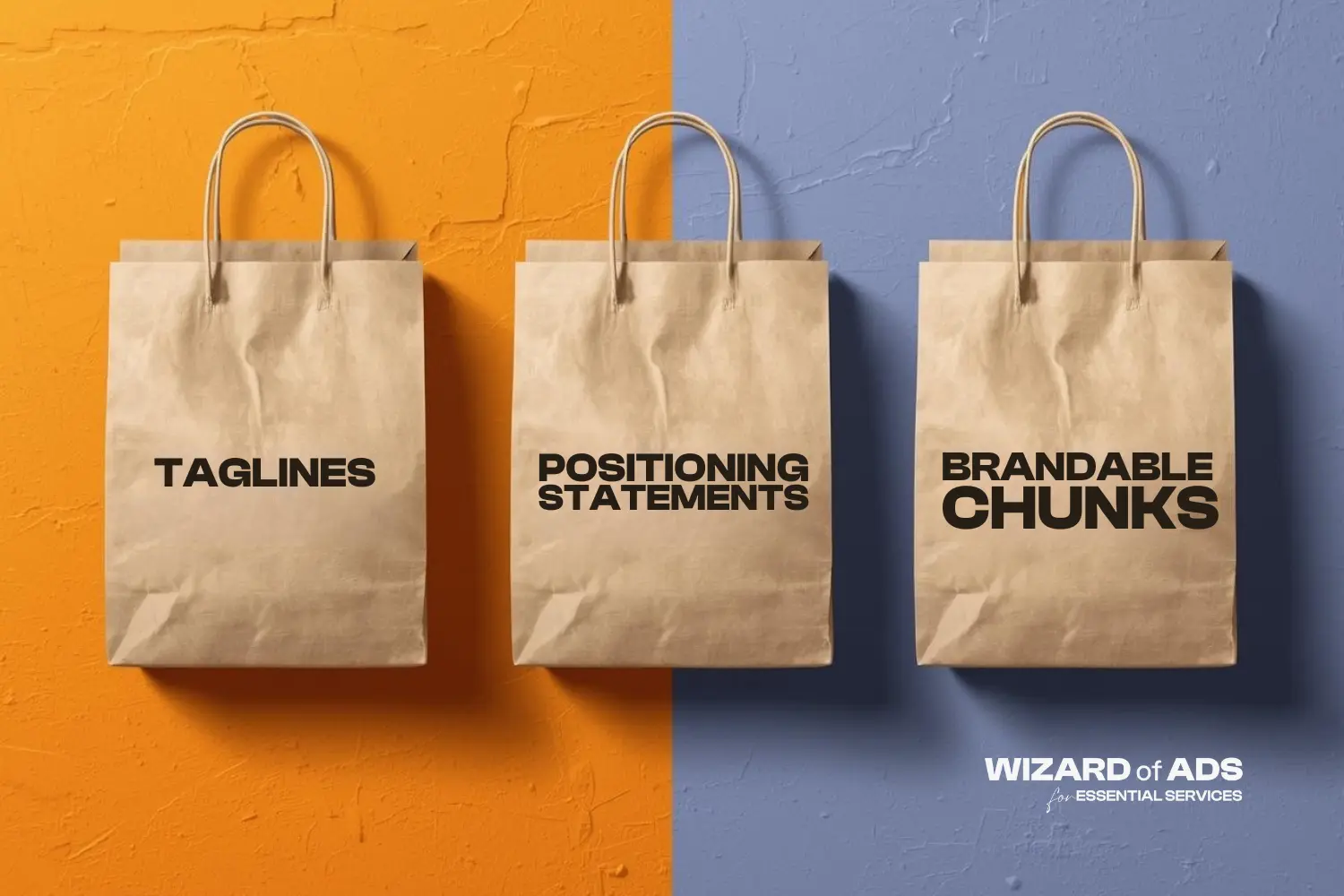
.webp)
.webp)
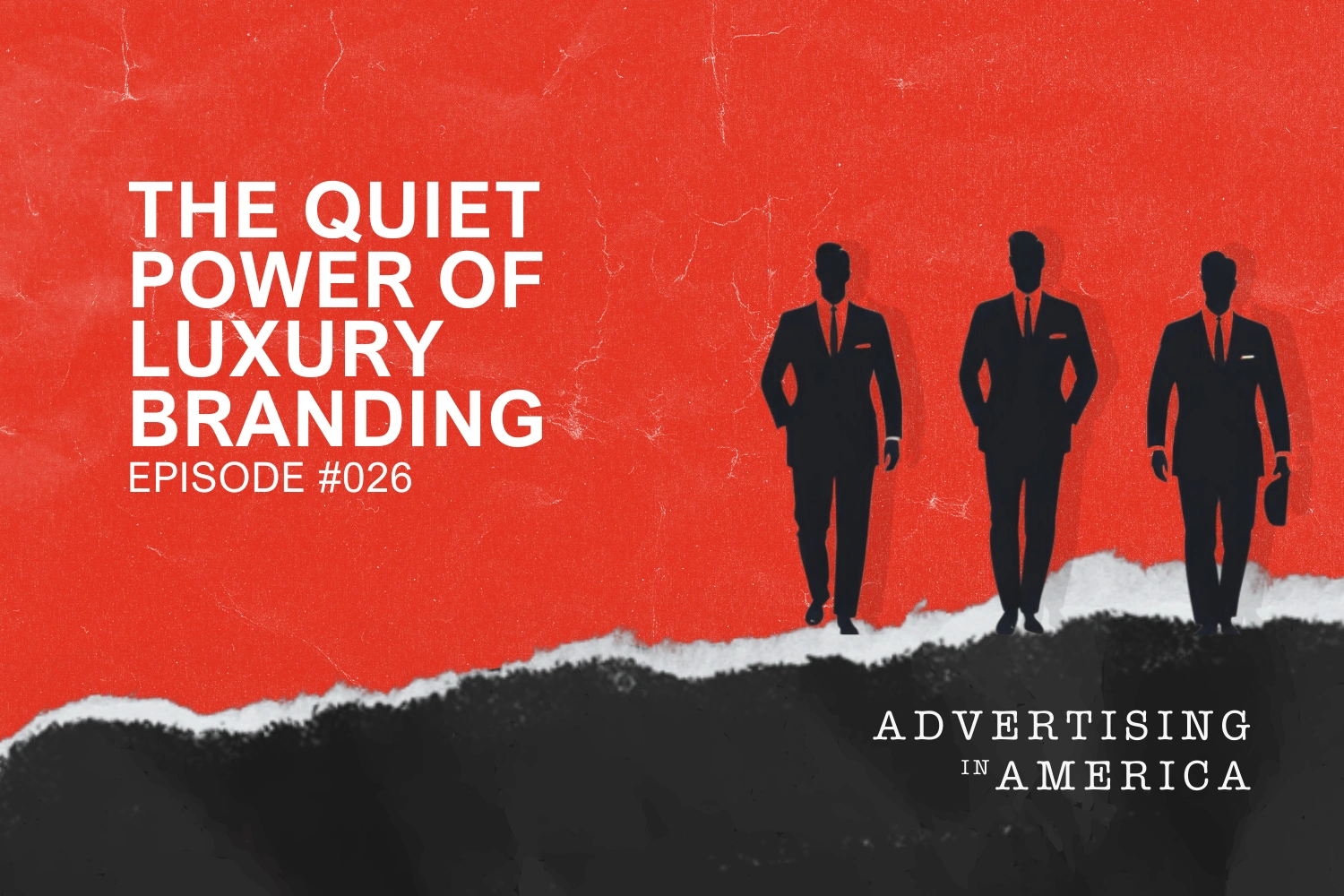
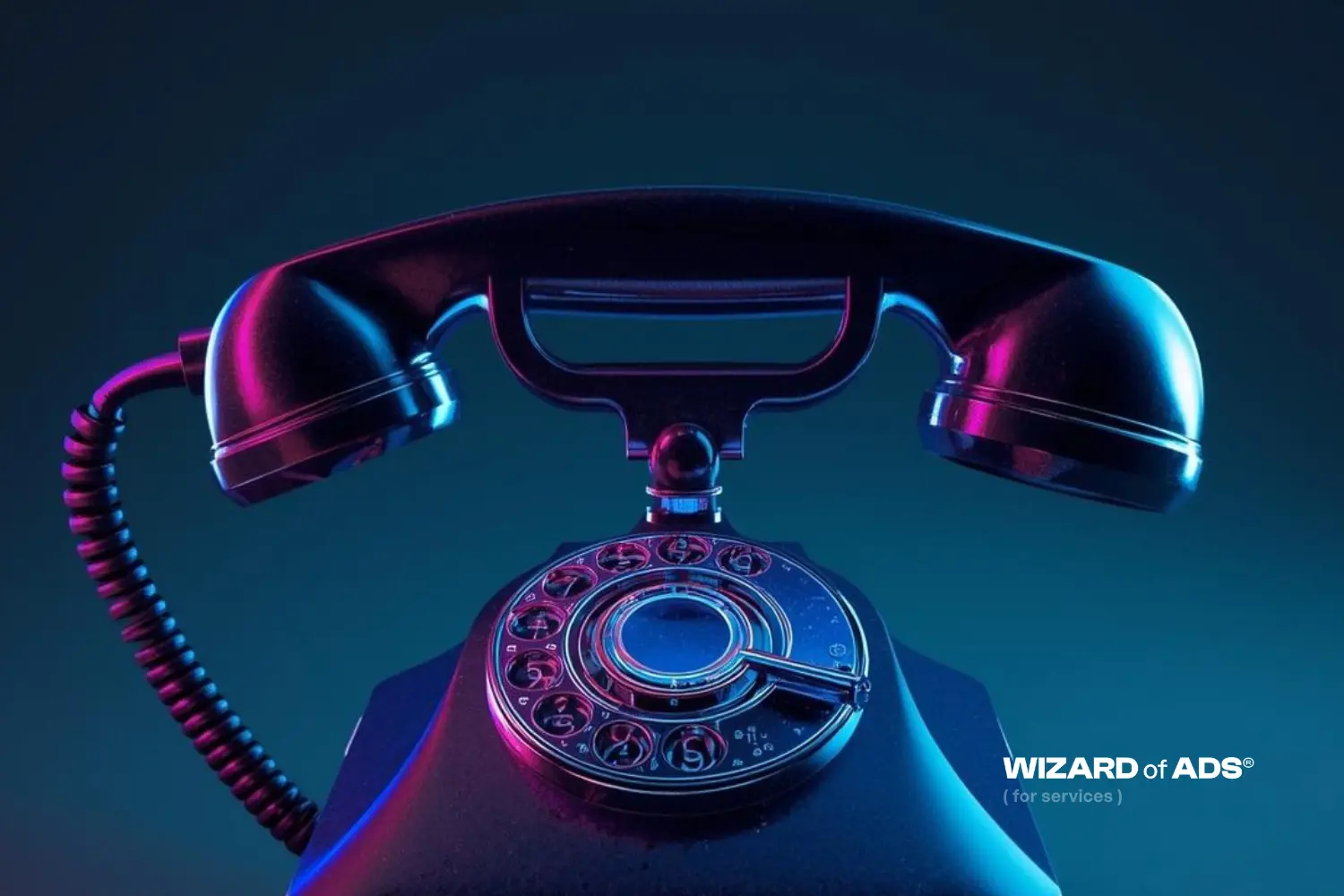
.webp)
.webp)
